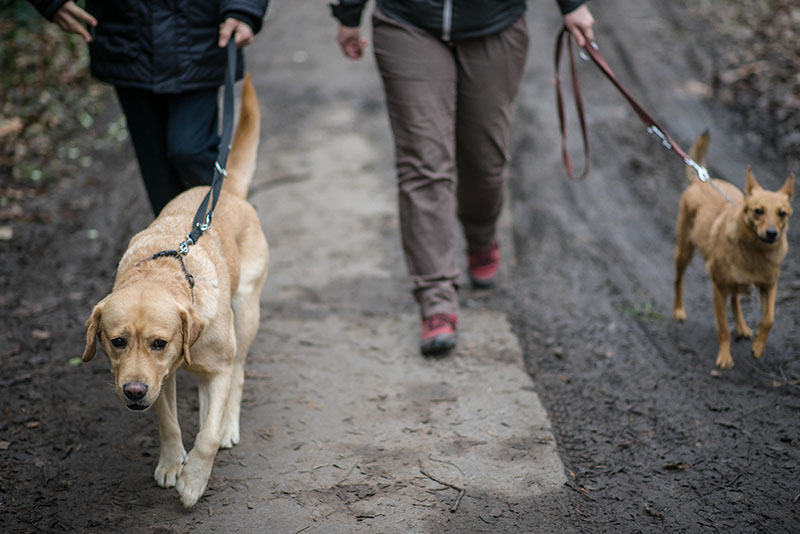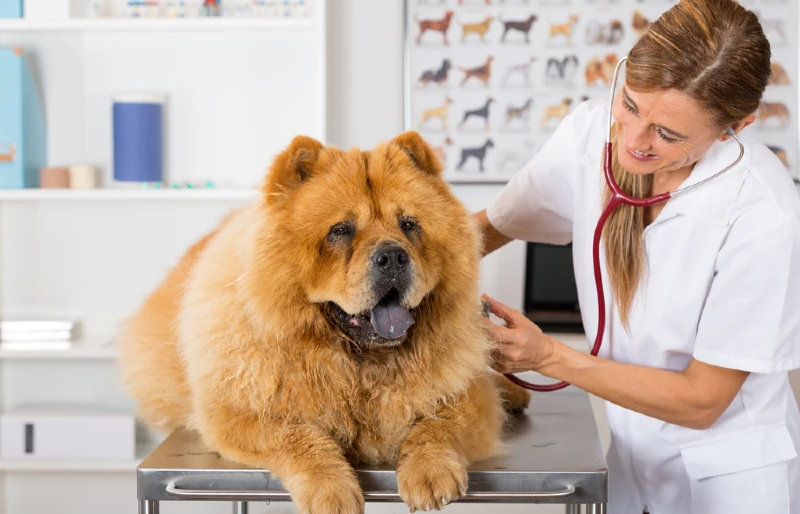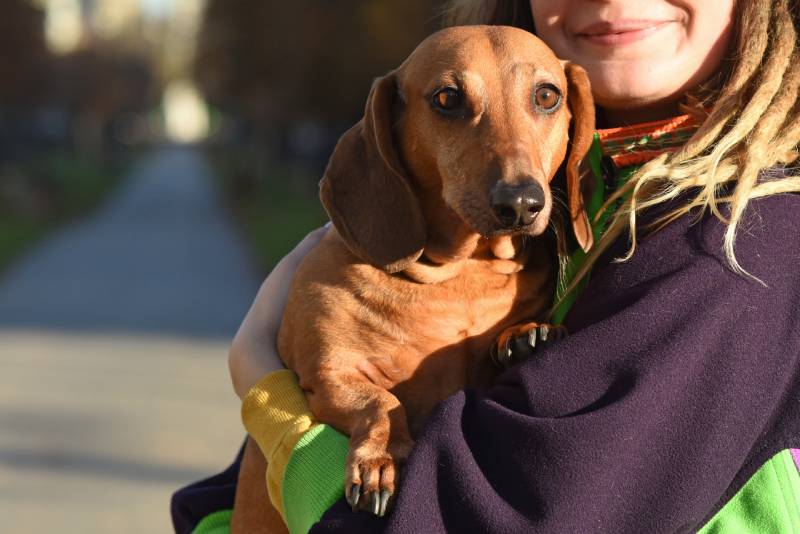Click to Skip Ahead
Divorce can be one of the hardest things anyone will go through. Breaking up a family can be devastating. It can also be devastating to learn that you might lose both your spouse and your dog in a divorce proceeding. Dog custody is a very basic legal principle that sees dogs primarily as property which can make your chances of getting your dog in a divorce much trickier than most people realize. Here is what the law says about dog custody and what you should know in case of divorce regarding your beloved pup.
How Does the Law See Dog Custody?
The law, as it stands, considers pets to be the property of their owners. This might not sit well in the minds of people who see their dogs as beloved family members, but that is how the law sees it. That means, in many cases, the law does not differentiate between your dog and your car or your flatscreen television. Like with many aspects of the law, possession factors in heavily. Since dogs do not have titles like cars, determining the precise owner can be tricky, but it often comes down to who most often possesses the dog and who spends the most money and time maintaining the dog.
In the case of a divorce proceeding, the court will go through the same process of awarding a dog as they would an expensive vase or family heirloom. This can be disconcerting for people who are desperately trying to win their dog in a divorce case, but it is important to know how the law views your dog so that you can plan accordingly.

Who Gets the Dog in Case of Divorce?
Who will get custody of a dog during a divorce can be a tricky question to answer, especially if both parties are attempting to get the dog. The judge will go through the same process they do with all other property. They will weigh the value of the item as well as whether the property is split evenly in the relationship or if someone has a larger stake in it than the other. After going through this process, the judge will make a ruling about which party will receive the dog.
In divorce cases, the well-being of the dog is rarely considered. Instead, the well-being and fairness of the split between the two human parties are of the highest priority. That being said, there are ways that you can boost your chances of winning your dog in a divorce battle, and it has nothing to do with emotional attachment or sentimental value.
How to Boost Your Chances of Winning Custody of Your Dog
If you are facing a looming legal battle with a spouse or family member regarding the status of a dog, the best thing to do is to document everything you can. The judge is going to ask questions about who pays for the dog, who possesses the dog most of the time, and who takes care of the dog on a regular basis. The judge is not going to want to hear about who feeds the dog at home but rather who takes the dog to the vet. Whose name is on the vet records? Whose name is on the microchip? Who pays for the dog’s food?
If you are the primary caretaker of your dog in the relationship, start gathering receipts to use as evidence to support that claim. If you spend your money on the dog and you are the primary point of contact at your local vet office, the judge will take that into consideration. Again, it is not dissimilar to how the judge looks at who makes car payments, house payments, or insurance payments in awarding other big-ticket items. Documentation is key to making your point and swaying the opinion of a judge or jury.

Changing Legal Perceptions
For those of you who can stomach the idea of your dog as a simple piece of property or can’t stand the thought of your dog going to your ex-husband or wife because they were the one who paid most of the bills, there is some good news. A few preliminary cases have started treating dogs more like children in divorce proceedings. That means that the well-being of the dog is being more highly considered than in the past. Analysts at Michigan State University’s Legal & Historical Animal Center have offered this take on the changing legal landscape, saying:
“Courts have considered the best interest of the pets in determining who gets custody of them. They have also awarded shared custody, visitation, and alimony payments to the owners.”
This is still not the norm, but it shows that there is some movement toward treating dogs differently than mere property when it comes to divorce. This could also be a sign that the law might change someday to treat dogs as emotional members of the family rather than pure property.
Make a Custody Agreement Privately or in Arbitration
One of the best ways to avoid losing your dog in a legal divorce proceeding is to hammer out the details about the dog’s custody before you go to court. A judge will honor a private custody agreement regarding a dog as long as it is done properly. Sometimes, making these plans and agreements privately or in separate arbitration is preferable to putting your dog’s fate into the hands of a judge (who might not even own or like dogs!).
If your spouse is willing to make a deal about the dog in private, it can smooth over many issues that could arise in court and give you a clearer picture of what to expect after the divorce in terms of your dog.

You Might Need to Fight for Your Dog
The bottom line is that you might need to fight for your dog in the case of a divorce. The law primarily sees dogs as property, and thus they will be treated like property by a judge when it comes to splitting up your marital assets. Just because you think that the dog loves you the most or that you are the best fit for your dog in a post-marriage reality does not mean that the judge or the law will see it that way, especially if your spouse is making noise indicating that they too want to keep the dog in the divorce.
Document everything you can. Tell your divorce lawyer or arbitrator that the dog is very important to you so that they can make plans to fight accordingly. It might not be as easy as you think to secure custody of your dog in a divorce.
Summary
In most states, a dog will go through the divorce process like any other “shared asset” meaning that it will be evaluated by a judge. Many times, this evaluation can feel cold and unfair, especially if you are particularly attached to your dog. Unfortunately, that is how it has to be by the letter of the law. If you are facing divorce and are worried about retaining your dog in the proceedings, you should document as much as you can to prove that you are the dog’s primary owner, which can help sway the court in your favor. In almost every case, this process is going to be difficult and, at times, feel unsavory. It is important to know how the law views you and your dog in a divorce so you can prepare ahead of time to make the best possible case for yourself.
- Related Read: How to Take Care of Your Dog: 22 Important Tips
Featured Image Credit: TetiBond, Shutterstock











